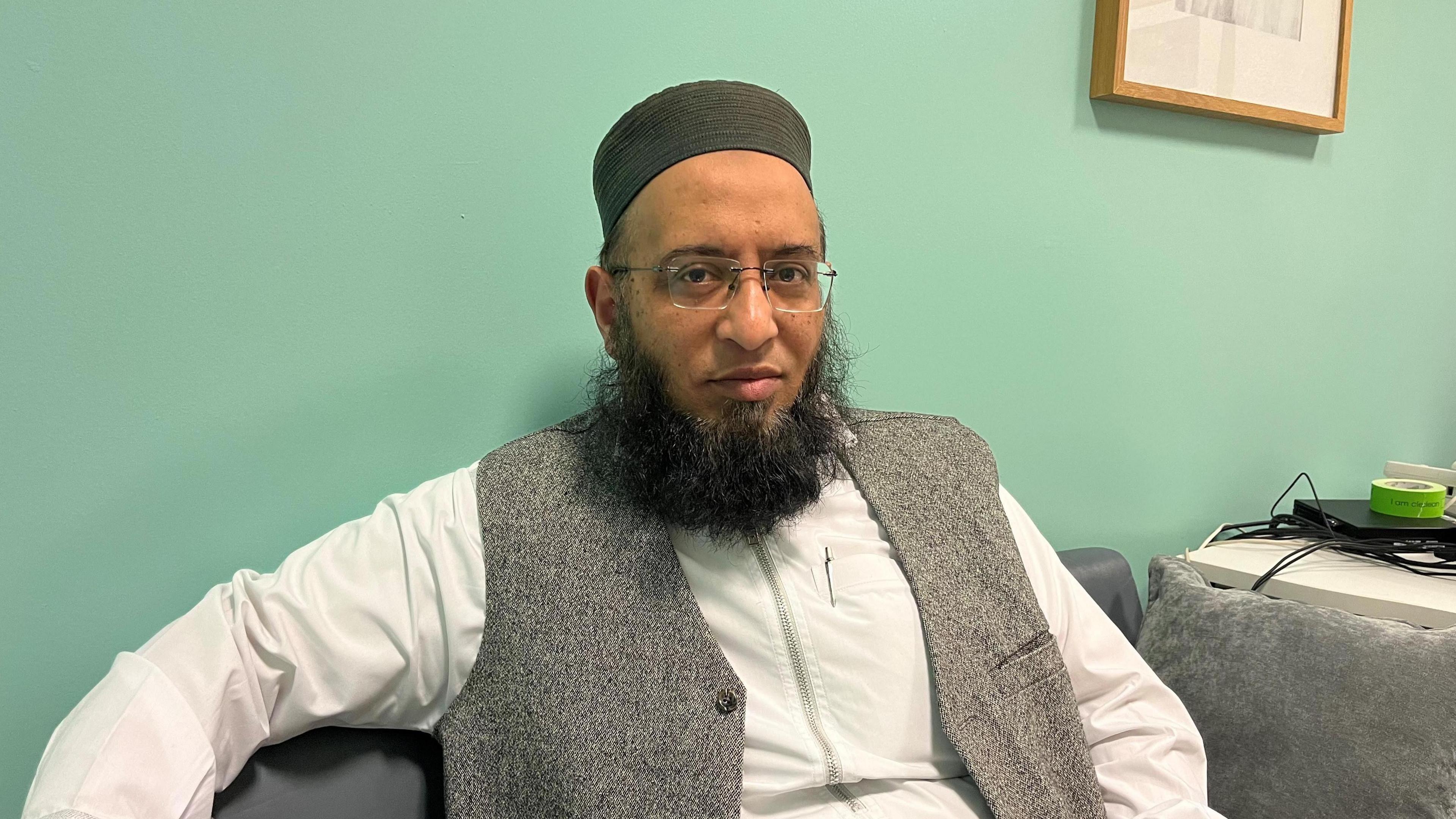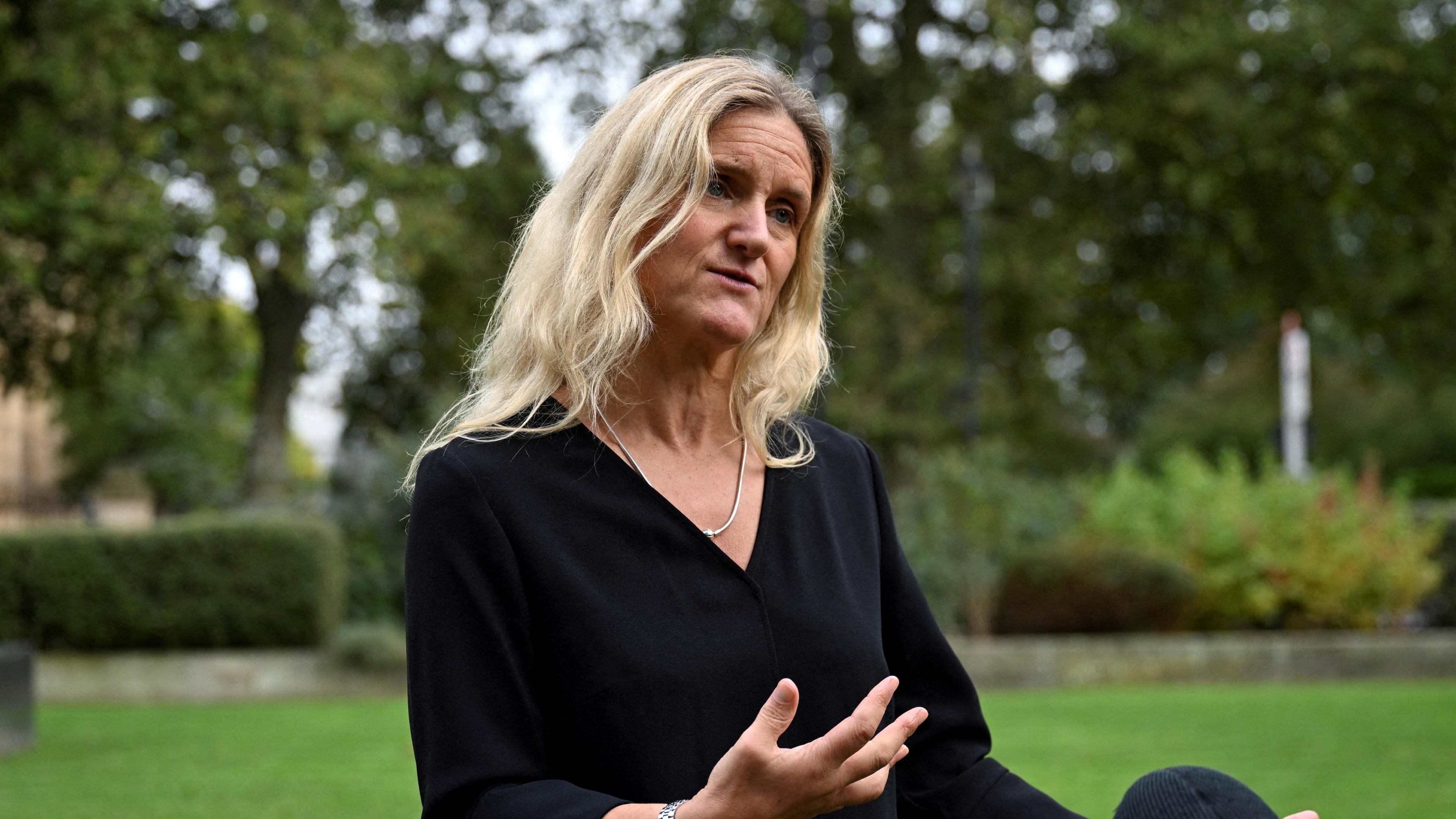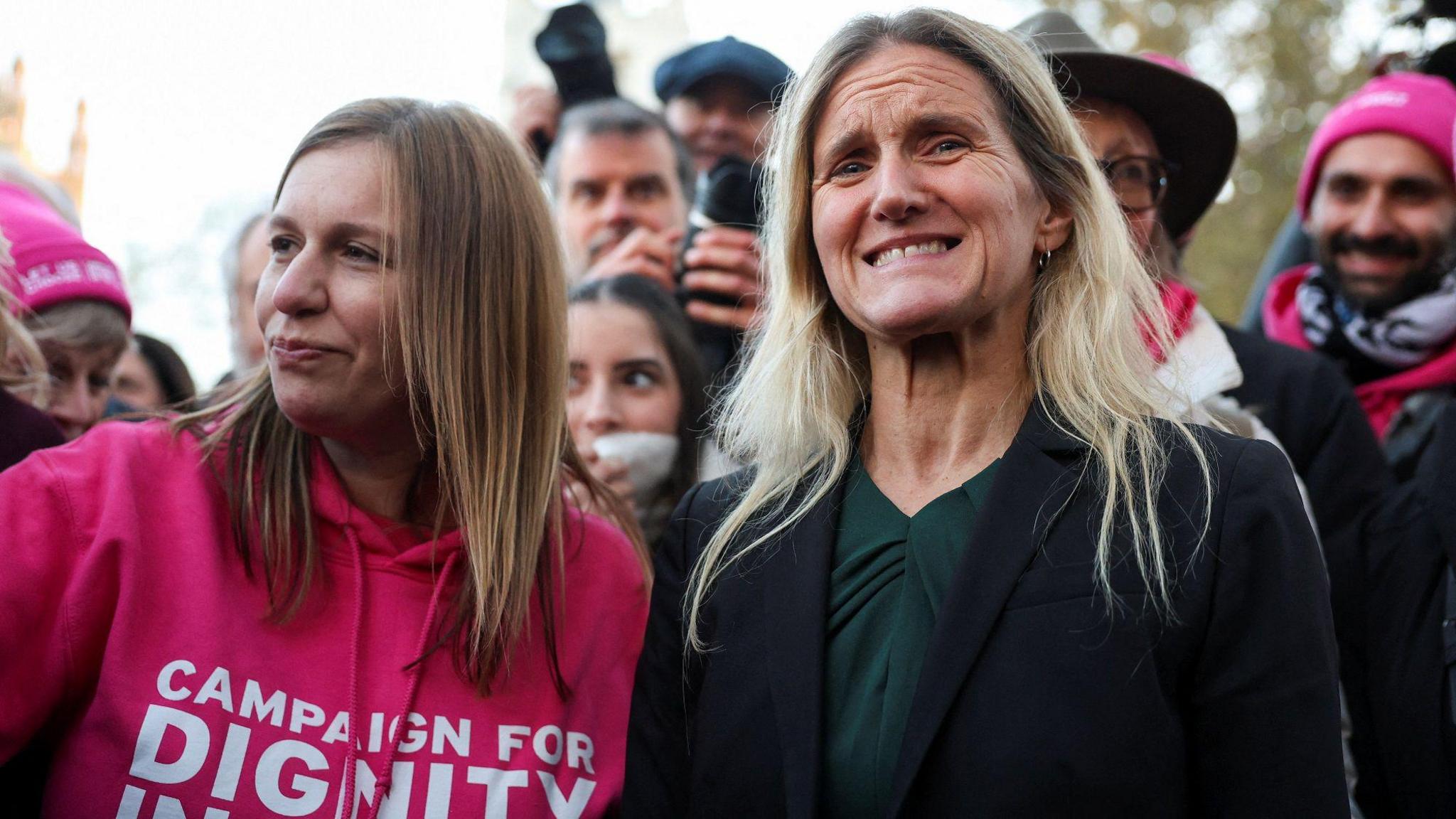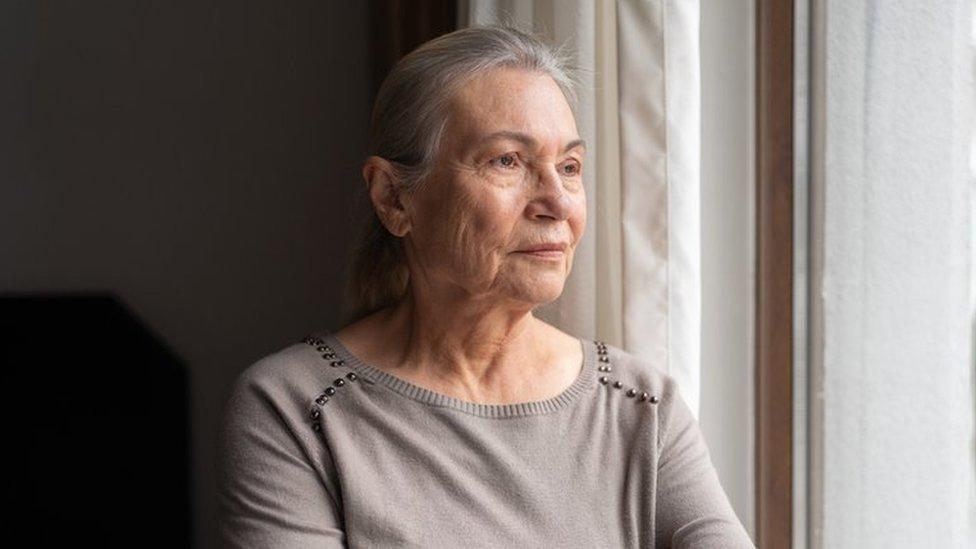Assisted dying will change society - Muslim leader

Mufti Zubair Butt said the assisted dying bill went against Islamic principles
- Published
Legalising assisted dying would change society and its views towards the elderly, sick and disabled, an Islamic leader has said.
Under draft legislation being considered by Parliament, terminally ill adults expected to die within six months could seek help to end their own life.
Mufti Zubair Butt, from Bradford - which is home to the highest proportion of Muslims in the UK - said the bill went against Islamic principles.
Speaking after MPs voted 330 to 275 in favour of the proposed change, he told the BBC "we need to make the best of it".
"I believe that the giving of life and the taking of life is the sole right and preserve of God," he said, speaking before MPs debated the changes.
"The assisted dying bill devalues that and it effectively implies it is better to be dead than terminally ill."
Mufti Zubair, who is also a hospital chaplain in Leeds and a trustee at the Bradford Council for Mosques, added: "There is always wisdom in God's decisions, but we may not understand that."
He said the bill "would alter, not just Muslims', but society's view towards the elderly, towards those who are seriously ill and disabled people".
Following Friday's vote, Mufti Zubair said: "Now we must work together to make sure the proper safeguards are adhered to in full and protect our most vulnerable from any unintended consequences."
He said he was concerned that "when the spotlight is no longer on this issue" the safeguards may "get watered down".
"We have to double our efforts to ensure that doesn't happen," he said.
None of the MPs in the Bradford district voted in favour of the bill.
Judith Cummins, MP for Bradford South, did not vote, while Anna Dixon, MP for Shipley; Naz Shah, MP for Bradford West; Imran Hussain, MP for Bradford East; and Robbie Moore, MP for Keighley and Ilkley, all voted against the bill.

Kim Leadbeater brought the bill to Parliament
The bill was put forward by Labour MP Kim Leadbeater, who urged politicians to focus on the families affected by "harrowing deaths" of some terminally ill people when voting.
The proposed legislation says that anyone who wants to end their life must:
be over 18 and live in England and Wales, and have been registered with a GP for at least 12 months
have the mental capacity to make the choice and be deemed to have expressed a clear, settled and informed wish, free from coercion or pressure
be expected to die within six months
make two separate declarations, witnessed and signed, about their wish to die
satisfy two independent doctors that they are eligible - with at least seven days between each assessment - and seek approval from a High Court judge
there is then a 14-day reflection period, or 48-hours if death is imminent
The bill will now face months of debate and scrutiny by MPs and peers, who could choose to amend it, with the approval of both Houses of Parliament required before it becomes law.
Following the vote, Leadbeater said: "If there are things that need to change, amendments that need to be put forward, let's have that conversation.
"I'm just glad we've been able to represent those voices today and we can take them onto the next stage."
Listen to highlights from West Yorkshire on BBC Sounds, catch up with the latest episode of Look North or tell us a story you think we should be covering here, external.
Related topics
- Published29 November 2024

